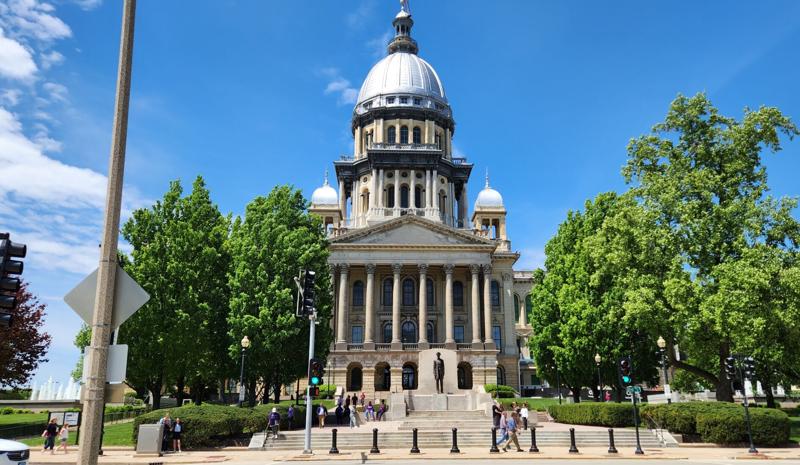(The Center Square) – After Tuesday’s Democrat and Republican primary elections, Illinois legislators return to Springfield to continue crafting a plan to spend tens of billions of tax dollars.
The total budget could be $123.2 billion with most coming from federal taxpayer funds. Gov. J.B. Pritzker looks to spend $52.7 billion of state taxpayer money for the next fiscal year. Officials from the Governor’s Office of Management and Budget met with legislators recently and fielded questions about a billion dollars in proposed tax increases.
The proposed changes range from increased sports betting fees that’s projected to raise $200 million, $101 million in reductions of the discount retailers get for collecting sales taxes, and even changes to how much corporate losses can be credited with an estimated increase in taxes of $526 million.
That’s with the expectation for lower corporate tax receipts in the coming fiscal year. Pritzker officials said personal income taxes are the bulk of income and that remains strong.
There was also discussion of the $175 million shift from statewide road funds to Chicago-area transit. Officials said it’s allowable with the state’s transportation fund lockbox amendment voters approved years ago.
State Rep. Curtis Tarver, D-Chicago, was critical of other fund transfer powers Gov. J.B. Pritzker has been granted in prior budget years. He noted the hundreds of millions of tax dollars being used for non-citizens and union contracts.
“Let it not be just for a union contract, let it not just be for asylum seekers, if you’re going to actually have that type of flexibility, let it be for all the people of Illinois who have very specific and unique needs,” Tarver said.
Pritkzer has been given up to 4% fund transfer ability in prior budgets. He’s spent more than half a billion dollars on the non-citizen migrant crisis in 2023 and proposes an additional $182 million. That’s on top of the $550 million budgeted for this year for non-citizen health care subsidies and the $629 million proposed for the new budget year.
In discussing budget requests from various agencies, the Illinois courts system is looking for more than what the governor proposed for it.
At a recent Senate committee hearing, Illinois Supreme Court Chief Justice Mary Jane Theis acknowledged growing demands after the enactment of no-cash bail.
“This has been a huge increase of appeals since the new act came into effect,” she said. “No additional funding was provided to our court.”
Theis said 10 years prior to the Pretrial Fairness Act going into effect, between Jan. 1, 2014, and Dec. 31, 2023, there were 1,071 appeals from bail orders. Between Sept. 18, 2023, when the Illinois Supreme Court set the end of cash bail after dismissing legal challenges, and Feb. 14, 2024, there were 2,003 appeals filed for detention orders, nearly double that from the prior decade in just a half year’s time.
A separate report released Friday from the Illinois Supreme Court notes the “staggering increase” in caseloads the appellate courts have faced since the implementation of the PFA began, going from an average of 17 annual bond appeals to a projected 4,557 appeals under the PFA, “a 268-fold increase.”
“This has been a dramatic change in six months, shot way up in terms of the number of cases,” Theis said. “We’re going to try to institute new rules that we’re hoping will bring it down, so I think we need more time at the appellate level to see what happens.”
She said the judicial system may have to seek further funding because of that, but hope to see other recommendations from a task force. Regardless, Theis said they need more money.
Friday, the Illinois Supreme Court released a report from the Pretrial Release Appeals Trask Force. In its report, the task force proposed amendments that the announcement said are intended to streamline the PFA appeal process while ensuring meaningful review of decisions to detain, release or impose conditions of release in the pretrial setting. The recommended changes will take effect April 15.
The governor’s proposed budget “unfortunately recommends funding of only $538.2 million [for the Illinois court system], which is approximately $30.9 million less than our request,” she said.
Legislators return Wednesday. The next budget year begins July 1.







